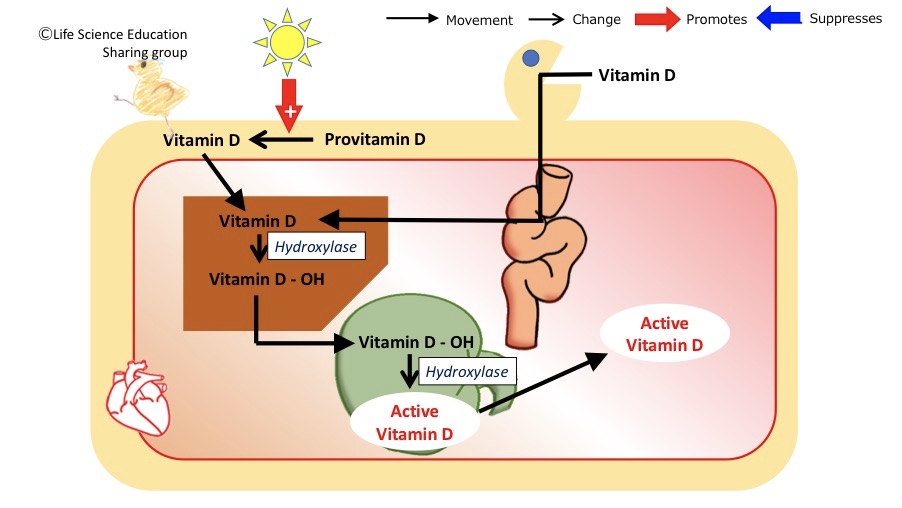「Endocrinology/CaHomeostasis/IntroToVitD」の版間の差分
編集の要約なし |
編集の要約なし |
||
| 25行目: | 25行目: | ||
In which of the following organs (two answers) is Vitamin D activated (hydroxylated)? {skin~=kidney~GI tract~=liver} | In which of the following organs (two answers) is Vitamin D activated (hydroxylated)? {skin~=kidney~GI tract~=liver} | ||
//LEVEL:2 | |||
//RAND | //RAND | ||
Is it possible to have active Vitamin D in your circulation without exposure to sunlight? {=Yes~No} | Is it possible to have active Vitamin D in your circulation without exposure to sunlight? {=Yes~No} | ||
2019年6月2日 (日) 18:49時点における版
| Vitamin D may be sourced from the diet or via the conversion of provitamin D in the skin under sunlight. |
An Introduction to Vitamin D
Ultraviolet rays convert Provitamin D in Vitamin D in the skin. This Vitamin D enters the circulation where it is taken up in the liver. Another source of Vitamin D is through absorption by the small intestine, this may also be taken up in the liver.
In the liver Vitamin D is hydroxylated. This hydroxylated Vitamin D enters the circulation where it can be further hydroxylated in the kidney to produce Active Vitamin D. This fully active Vitamin D enters the circulation.
Challenge Quiz
You must wait for the CORRECT! 正確!
<GIFT> //LEVEL:2 //RAND Which TWO of the following are the original sources of Vitamin D prior to entry into the circulation? {=skin~kidney~=GI tract~liver}
//LEVEL:2 //RAND In which of the following organs (two answers) is Vitamin D activated (hydroxylated)? {skin~=kidney~GI tract~=liver}
//LEVEL:2 //RAND Is it possible to have active Vitamin D in your circulation without exposure to sunlight? {=Yes~No}

